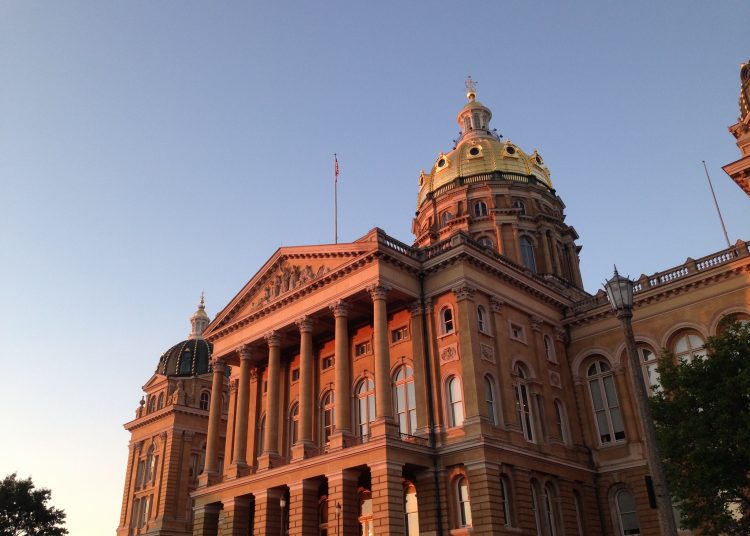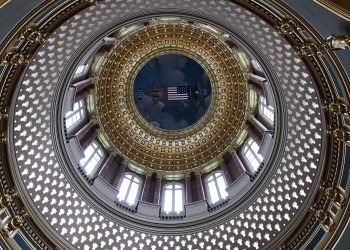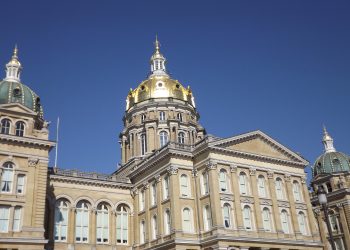DES MOINES, Iowa – On Wednesday evening, the Iowa House Education Committee passed HSB 242, legislation that expands and reforms Iowa’s charter school law, by a 14 to 8 party-line vote.
Current law only allows schools to obtain charters through the approval and oversight of local school districts, providing another public education option for parents. Charter schools now can only operate within the boundaries of the school district. There are only two authorized charter schools in the state, both high schools, one in Storm Lake and the other in Maynard.
The existing charter schools will continue to operate under the current code, but no new charter school can start under that chapter if the bill becomes law. HSB 242 creates a new code chapter with two charter school models – the school board – state board model and the founding group – state board model.
The state board of education can approve charter school requests from founding groups created by local school districts who would operate a charter school within and as part of a school district as a new attendance center, part of an existing attendance center, or by converting an existing attendance center.
HSB 242 also allows the state board of education to approve charter schools established by independent founding groups that create a charter school within the state’s boundaries that operates as a new attendance center independently from a public school district. The charter school would be overseen by a governing board, either elected or selected, based on the charter school’s contract with the state.
The bill requires the Iowa Department of Education to monitor charter schools’ progress and establishes application and approval criteria for the state board of education to implement. Charter school contracts can be granted for ten-year terms.
What makes charter schools unique is that they are exempt from all state statutes and rules and any local rule, regulation, or policy applicable to non-charter schools except for health and safety regulations and laws, nondiscrimination laws, they must be non-sectarian and non-religious, tuition-free, provide special education services, audit requirements, and transportation requirements.
Charter schools are also required to follow assessment and academic standards requirements under Iowa Code unless the state board of education provides a waiver in their application process. Charter schools under this bill must hire licensed teachers with the appropriate endorsements in the subjects they will teach.
The state board of education can also revoke a charter school charter if it fails to meet its contractual obligations, and the state board of education can deny a renewal request.
Each student enrolled in a charter school established under the bill is counted, for state school foundation purposes, in the student’s district of residence. Those districts are then responsible for paying the charter school an amount equal to the state cost per pupil during the previous school year, and the teacher leadership supplement state cost per pupil. There are additional funds required if a student is a non-English speaker or if a student is eligible for a postsecondary enrollment options program.
Democrats during the committee offered several amendments that failed.
Several Democrats on the committee expressed concerns about charter schools operated independently of local school boards. They peppered State Rep. Skyler Wheeler, R-Orange City, who managed the bill in committee.
State Rep. Mary Mascher, D-Iowa City, said schools operated by founding groups outside of locally, elected school boards are not public schools and should not receive public money.
Wheeler argued that they are approved by the state, monitored by the state, are tuition-free, can’t be religious, have to accept all students until they reach their cap, and have a lot more transparency and accountability.
He also reminded the committee that receiving a charter is a rigorous process.
In his closing comments, Wheeler discussed why he supports school choice.
“When we look at this issue of education, we should be asking ourselves what is best for each individual student’s education should always be centered around the needs of the student. And we should empower parents who know what’s best for their kids to make the best decision for where and how to educate them. The majority of this will likely be traditional government, public schools, or some it may be charters, for others privates, magnets, online schools, or homeschooling. Our job isn’t to tell parents and students how and where to be educated but to simply empower them to make the best decision they can and to give the options that they need to find out what works best for them,” he said.
Wheeler also pointed out the current charter school law isn’t working.
“The current system for creating charter schools is problematic. There’s a reason why we only have two and why they haven’t been other attempts to start one. This bill creates a cleaner system that still has a load of accountability and transparency to it while working through the state board to create charters. If a charter school doesn’t perform, it can have its charter revoked. That is the ultimate form of accountability,” he concluded. “Again, the question at hand really needs to be what is best for the parents and for the students. It’s our job to empower them.”
Listen to the committee debate below:
The Iowa House Education Committee did not take up HSB 243 that passed in subcommittee this week. That bill is part of Gov. Kim Reynolds’ Students First Initiative that creates education savings accounts for students entering kindergarten or currently attending a public school identified under the Every Student Succeeds Act as needing comprehensive support. The Iowa Senate passed a comprehensive bill including charter schools and ESAs, the Iowa House has taken a piecemeal approach so the fate of ESAs is uncertain.
















